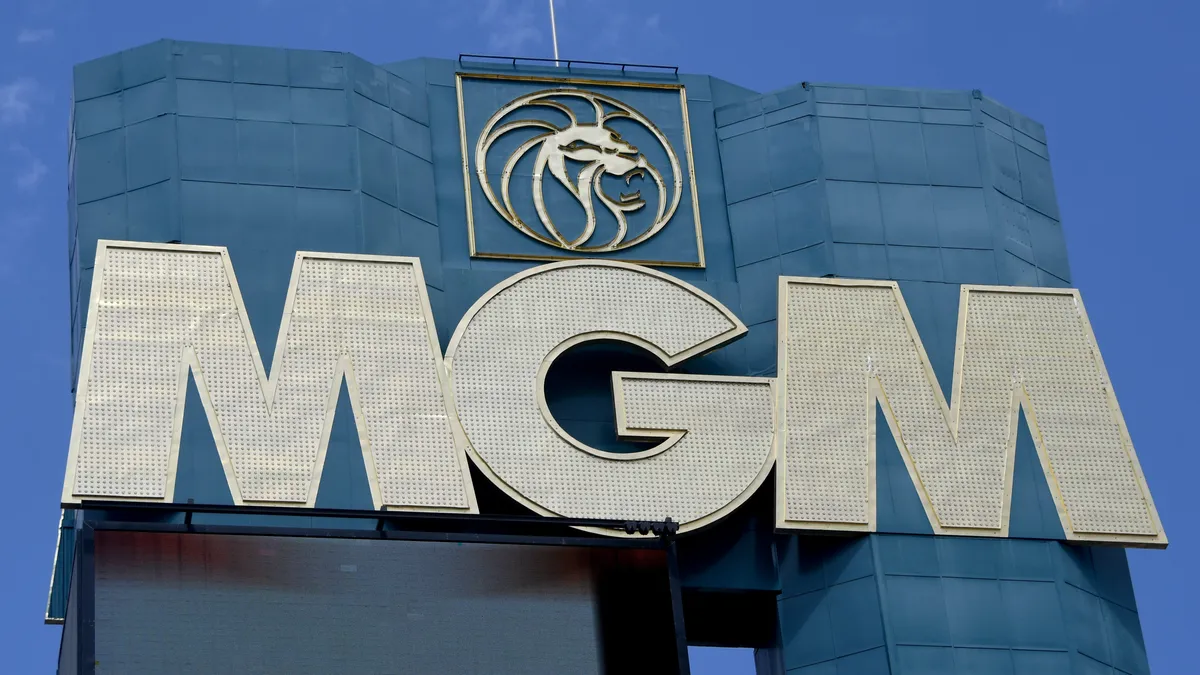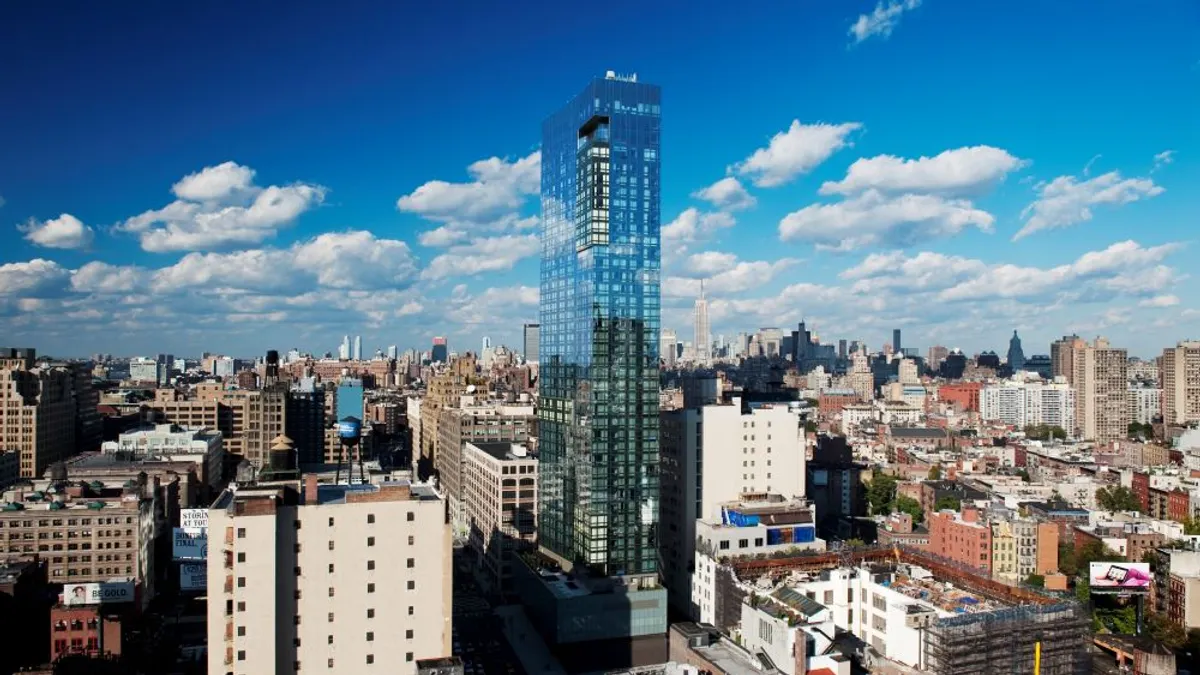Traveler behavior and preferences have changed in recent years, impacting the way hoteliers operate.
The evolving role of online travel agencies, social media, alternative lodging options, global regulations and emerging demand channels are all affecting how people travel, and, in effect, have brought on new challenges and priorities for hoteliers.
In “The State of Distribution 2024,” New York University’s Jonathan M. Tisch Center of Hospitality, along with HEDNA, a global network of hospitality professionals, looked at how hoteliers are responding to industry changes and what solutions they’re using to streamline operations, drive direct bookings and improve guest experiences.
Operational challenges
Hoteliers across large, mid-sized and independent chain scales struggle with operational challenges. Cumbersome tasks include manually managing rate parity, handling data entry for marketing campaigns and manually generating reports, according to the report.
One challenge that all chain scales face, though, is manually monitoring and updating content — a task that involves regularly updating hotel descriptions, photos, rates and availability across various distribution channels.
Hotel chains across all scales are challenged by content management, in some capacity, because they need to put significant effort and resources into the task to produce justifiable returns on investment, according to the report.
However, the effectiveness of content management directly influences a hotel's ability to attract and retain guests, so it’s critically important for hoteliers to have a solid strategy for this task despite it being labor-intensive, the report detailed.
Large international chains often have dedicated teams for content management and employ “sophisticated content management systems” to streamline these tasks, according to the report. Mid-sized regional chains, on the other hand, often focus on key platforms that deliver the most bookings and limit their presence to a few select channels.
Independent hotel owners and managers, who find content management “particularly daunting due to limited staff and resources,” often personally ensure their property is accurately and attractively presented online, the report detailed.
Reducing manual effort
The “nuanced demands” of distribution, marketing and revenue management teams create varying levels of manual effort needed across chain scales. But there is a unified desire by all hotel types to reduce their efforts and streamline operations, according to the report.
“Large hotel chains are focused on optimizing efforts to provide a consistent experience across all channels. Mid-sized hotels, on the other hand, are increasing their efforts to drive direct bookings. And due to a lack of reliable reports and data, independent hotels are focusing more on identifying new channels,” Vanja Bogicevic, clinical assistant professor of hospitality marketing at NYU's Jonathan M. Tisch Center of Hospitality, said in the report.
Across chain scales, hoteliers are turning to technology to achieve operational efficiency, the report detailed.
Large hotel chains have a desire to automate routine tasks, while mid-sized hotels want to adopt more integrated technology solutions — from reservation systems that “seamlessly update across all channels” to marketing automation tools that can personalize guest communications, the report noted.
Independent chains want to leverage technology that can “automate the most time-consuming tasks without compromising the quality of guest interactions,” according to the report. This includes property management and customer relationship management systems tailored to smaller operations and online booking engines that reduce reliance on manual reservation management.
Integrating technology
Hotels across chain scales are strategically deploying technology to boost operational efficiency and the quality of the guest experience, according to the report. Technologies used to capture bookings are “the most utilized across all property types,” the report detailed.
“The majority of hotels are adding more technologies. However, they are not increasing the headcount across the distribution teams that will be managing these technologies."

Chris Murdock
HEDNA president and director of distribution system support and strategy NCA at Accor
As a significant portion of guests book through online travel agencies, hotels are prioritizing methods to drive direct bookings, according to the report. Experts previously told Hotel Dive that pressure from OTAs is driving consolidation in the hotel industry.
Across large, mid-sized and independent hotel chains, the top three technologies in use are property management systems, booking engines and channel managers.
There is a “large opportunity” for hotels to still implement tools that manage customer data, generate analytics, distribute content and automate marketing processes, the report detailed.
And when it comes to what’s motivating hotels’ technology adoption decisions, hotels value a clear return on investment as the “paramount factor,” according to the report.
“While ROI continues to be a key decision making factor, the difference in decision making across different types of hotels is owned by their objectives,” Vanja said. “Large chains want to ensure faster adoption, mid-sized chains need [a] higher level of support, and independent hotels want fewer interfaces to work with.”
Technologies need to “resonate with the unique challenges and objectives of their potential customers,” according to the report.
Reinventing teams
As hotels integrate new technologies, the “evolution of organizational structures, training practices, and talent acquisition strategies is not just inevitable but essential,” according to the report.
Following the pandemic, hotels across chain scales reported bringing some or all of their marketing in-house or adding marketing responsibilities to other teams. Hotels also reported prioritizing commercial strategy, combining sales, marketing, revenue and distribution teams.
“The majority of hotels are adding more technologies. However, they are not increasing the headcount across the distribution teams that will be managing these technologies,” Chris Murdock, HEDNA president and director of distribution system support and strategy NCA at Accor, said in the report. “This indicates that existing resources from other teams will be given extra responsibilities to manage these technologies. As a result, the business unit itself is beginning to merge with others.”
Across all hotel types, investing in technology training has also become a key strategy for improving productivity. And a majority of respondents said that “hiring talent that can deliver strong ROI with existing technology” is either “very important” or “important.”
Large chains, particularly, focus on comprehensive training across a broad range of technologies, while mid-sized chains aim for high-impact training that enhances ROI and independent hotels concentrate on maximizing the utility of critical systems, the report detailed.
Despite an increased prioritization of technology, human expertise is “indispensable” to hotels, according to the report.


















